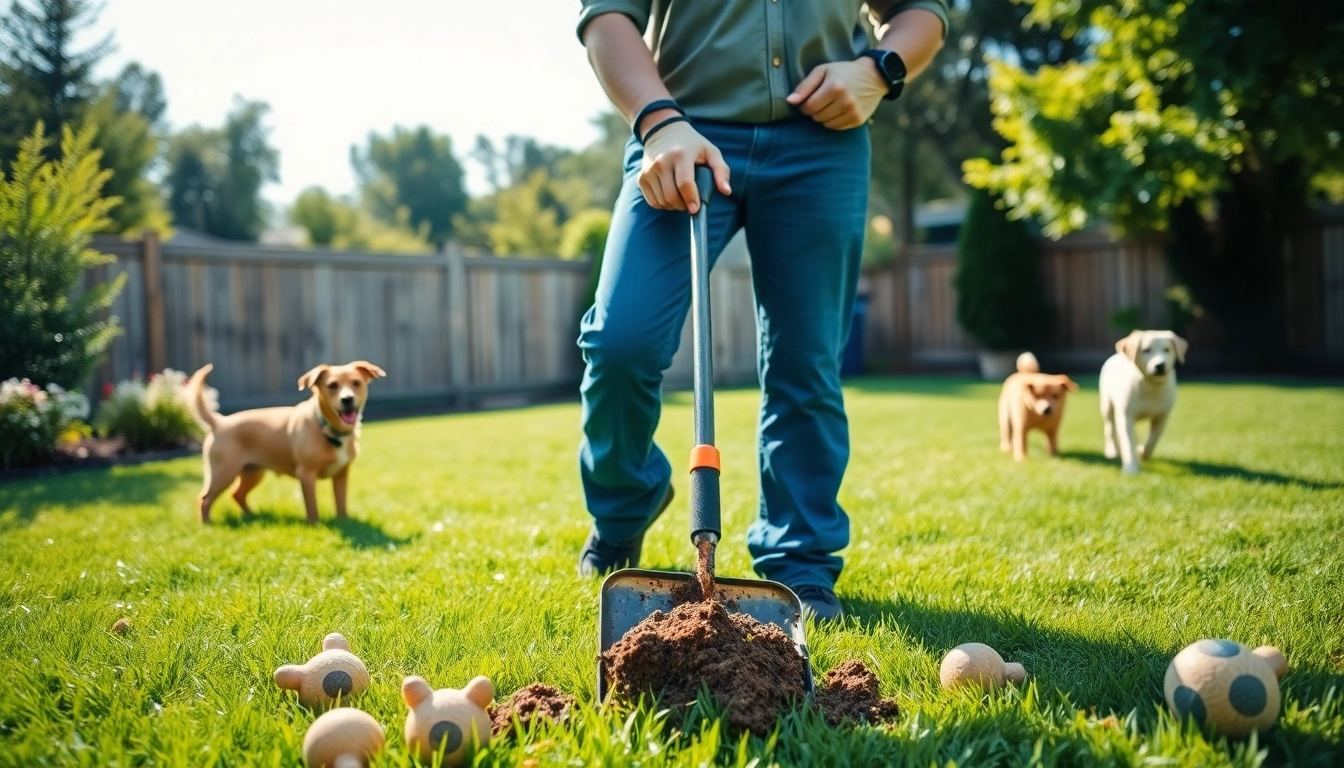Understanding Weekly Dog Poop Scooping
As a pet owner, maintaining a clean yard is essential not only for aesthetics but also for the health and well-being of your furry companion. Weekly dog poop scooping services offer a convenient and effective solution to manage dog waste, ensuring your outdoor space remains clean and safe. This article explores what weekly dog poop scooping involves, the benefits it provides, and how to choose the right service for your needs.
What is Weekly Dog Poop Scooping?
Weekly dog poop scooping is a service where trained professionals visit your yard regularly—typically once a week—to remove dog feces. The service encompasses picking up waste, disposing of it properly, and often includes deodorizing the yard to eliminate unpleasant odors left behind. This routine maintenance not only helps keep your yard clean but also reduces the likelihood of health issues related to pet waste accumulation.
The Benefits of Regular Poop Scooping
Engaging in weekly dog poop scooping has multiple benefits for both pet owners and their pets:
- Improved Hygiene: Regular removal of waste prevents the buildup of harmful parasites and bacteria that can pose health risks to both humans and pets.
- Enhanced Yard Aesthetics: A clean yard is visually appealing and provides a pleasant environment for outdoor activities, gatherings, and play.
- Time-Saving: Hiring a service eliminates the burden of scooping poop yourself, allowing you to enjoy more quality time with your pet.
Health and Hygiene Benefits
Preventing Parasite Infestations
Dog waste can harbor various parasites, including roundworms, hookworms, and tapeworms. When left unattended, these parasites can contaminate the soil, grass, and even water sources, posing risks to other local wildlife and pets. Weekly scooping helps prevent these infestations by removing fecal matter before it can become a breeding ground for harmful organisms.
Reducing Health Risks to Family and Pets
Pet waste not only causes unpleasant odors but also poses significant health risks. Dog feces can lead to infections and diseases such as giardiasis and leptospirosis. For families with children, the risks increase as young children often play in the yard. A professional weekly poop scooping service reduces these health risks by keeping the yard clean and safe.
Caring for Your Lawn and Landscape
In addition to health benefits, regular scooping can save your grass and landscaping from damage. Dog waste is high in nitrogen, which, while beneficial in small amounts, can burn your lawn if left to accumulate. By regularly removing waste, your lawn has a chance to thrive without the adverse effects of dog feces.
Cost-Effective Options for Pet Owners
The Cost of Weekly Dog Poop Scooping Services
The cost of weekly dog poop scooping services varies depending on several factors, including your location, the size of your yard, and the number of dogs you have. On average, you can expect to pay between $10 to $20 per week for regular scooping services. Many companies offer discounts for multi-pet households or long-term contracts.
Comparing Pricing: DIY vs. Professional Services
While you might consider picking up after your pet yourself, the time and effort can add up over time. According to surveys, pet owners often underestimate the amount of waste their dog produces. Professionally trained scooper services not only save time but also ensure that waste is disposed of in an environmentally friendly manner. When comparing costs, consider the value of your time and the peace of mind that comes from hiring a professional.
Finding Discounts and Subscription Services
Many pet waste removal companies offer promotions, discounts for first-time customers, or subscription services that can reduce overall costs. Seasonal packages may also be available, allowing for flexible service that meets your needs all year round. It’s worth researching various providers to ensure you receive the best value for your money.
Choosing the Right Professional Service
What to Look for in a Poop Scooping Service
When searching for a reputable dog poop scooping service, consider the following criteria:
- Experience and Training: Look for companies that employ trained professionals who understand proper waste disposal and pet care.
- Insurance and Guarantees: Ensure the service is insured and provides guarantees for customer satisfaction.
- Environmental Practices: Opt for companies that follow eco-friendly disposal processes and can demonstrate responsible waste management.
Identifying Local vs. National Companies
Depending on your location, you may have access to several local and national poop scooping services. Local companies often provide personalized service and a greater understanding of the community’s needs, while large national chains may offer standardized pricing and availability. Researching both options can help you find a service that aligns best with your expectations.
Reviews and Testimonials: Making Your Decision
Before settling on a service, read customer reviews and testimonials to gain insights into their reliability and quality of service. Sites like Yelp, Google Reviews, and local Facebook groups can provide valuable feedback from other pet owners. Recommendations from friends, family, or even your veterinarian can also serve as a trusted resource.
FAQs About Weekly Dog Poop Scooping
How Often Should You Scoop Your Yard?
Experts recommend scooping your yard at least once a week. However, for homes with multiple dogs or smaller yards, more frequent scooping may be necessary to maintain cleanliness and hygiene.
What Happens During a Professional Service Visit?
During a scheduled service visit, professional scoopers will arrive at your home, typically equipped with the necessary tools and equipment to remove dog waste effectively. They will assess your yard, scoop up the piles of feces, dispose of it properly, and often sanitize the area to mitigate odors.
Can Poop Scooping Services Accommodate Special Needs?
Yes, many professional dog poop scooping services can accommodate special needs, such as dogs with behavioral issues or households needing advanced scheduling arrangements. It’s important to communicate your specific requirements when contacting a service to ensure they can meet your expectations.
